https://www.innerbody.com/diseases-conditions
Medically reviewed by: Stephanie Curreli, MD, PhD
Last Updated: Apr 5, 2019
While studying human anatomy and physiology—the structural parts of our body and how they function—it is also very useful to explore common ways in which our organs and body parts can fail to function properly. In this section, you will find many common (and some not so common) kinds of diseases and medical conditions that lead to—or result from—disruptions of normal body functioning. You’ll be able to explore the causes of these conditions; learn about their symptoms; and discover not only treatment regimens, but also preventative measures that can sometimes be taken to avoid acquiring a disease in the first place.
And if you want to bring some data for your next discussion with your healthcare provider:
- Learn more about DNA health testing. Test results can reveal inherent, genetic risk of acquiring a variety of diseases including some cancers. But you can also learn potentially valuable information about your biological age at the cellular level—information that can help you make proactive and healthy lifestyle decisions.
- Explore the many home health tests that you can order. Just use the test kit at home, mail in your sample and receive results quickly. You’d be surprised how many things can be reliably tested using at-home test kits. Afterward, take your results to your next primary care visit in order to discuss with your healthcare provider.
Cancer

Cancer is an abnormal growth of cells. There are actually more than one hundred known types of cancer that can happen in the human body. Cancer can manifest as a tumor, but not all cancers cause tumors and not all tumors are even cancerous; some are benign. With cancerous cell growth also comes the possibility that the growth will spread to other organs or systems in the body. This is called metastasis. In this section you can explore many of the most common forms of cancer that make people sick.
- Basal Cell Carcinoma »
- Bladder Cancer »
- Breast Cancer »
- Colon Cancer »
- Liver Cancer »
- Lung Cancer »
- Lymphoma »
- Melanoma »
- Prostate Cancer »
- Squamous Cell Carcinoma (SCC) »
- Stomach Cancer »
Cardiovascular
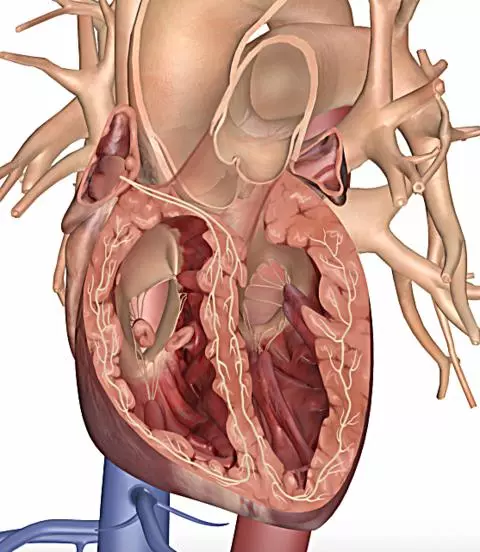
Diseases involving the blood vessels, heart and the movement of blood through the body are considered cardiovascular diseases. Beneath this umbrella we find some of the most common and deadly diseases, such as heart attack and stroke. Thankfully, the vast majority of cardiovascular disease is preventable. Time to get the facts about these diseases and the underlying conditions that lead to them!
- Aneurysm »
- Atherosclerosis »
- Atrial Fibrillation »
- Chilblains »
- Deep Vein Thrombosis (DVT) »
- Heart Attack (Myocardial Infarction) »
- Hemangioma »
- Hemophilia »
- Hemorrhoids »
- Hypertension (High Blood Pressure) »
- Myocarditis »
- Stroke - Ischemic and Hemorrhagic Stroke »
- Tachycardia »
Digestive and Urinary
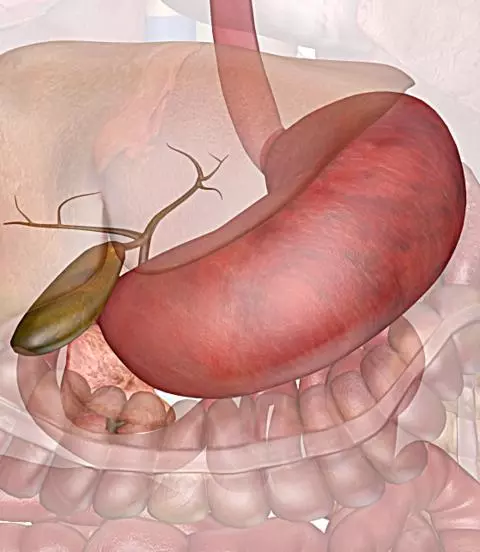
Learn about diseases and conditions that involve the digestive tract—including the esophagus, stomach and intestines—as well as accessory digestive organs like the liver and pancreas. In addition, explore diseases of the urinary tract, affecting organs like the kidneys and bladder.
- Appendicitis »
- Cirrhosis »
- Encopresis - Stool Holding or Soiling »
- Gallstones - Cholecystitis and Biliary Colic »
- Gastroenteritis (Viral, Bacterial and Parasitic) »
- Gastroesophageal Reflux Disease (GERD) »
- Halitosis - Bad Breath »
- Hepatitis »
- Hirschsprung's Disease - Short-Segment and Long-Segment HD »
- Inflammatory Bowel Disease (IBD) »
- Irritable Bowel Syndrome (IBS) »
- Kidney Stones »
- Liver Cysts - Simple Cysts, Echinococcosis, Cystic Tumors and PLD »
- Obesity »
- Pancreatitis »
- Peptic Ulcers »
- Urinary Tract Infection (UTI) »
Endocrine
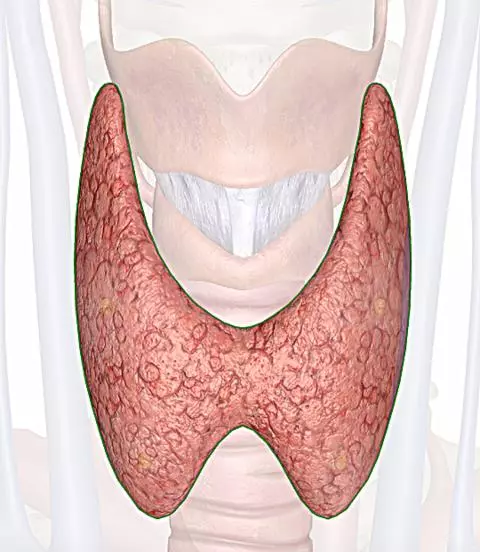
Diseases and conditions involving endocrine glands affect the balance of hormones in our bodies. These can profoundly disrupt our mood, physical health, body weight, metabolism, ability to reproduce and more. Learn all about diabetes, hyperthyroidism and other common diseases.
- Addison's Disease and Addisonian Crisis - Adrenal Insufficiency »
- Diabetes Mellitus »
- Hyperthyroidism »
- Mittelschmerz »
- Pituitary Adenoma »
- PMS (Premenstrual Syndrome) »
- Polycystic Ovary Syndrome (PCOS) »
- Prostatitis »
Immune/Lymphatic

Explore how our bodies respond to diseases that affect the very systems responsible for defending us from disease. Learn more about HIV/AIDS, lupus and other diseases affecting our immune and lymphatic systems.
- Hashimoto's Disease »
- HIV/AIDS »
- Limited Scleroderma (CREST Syndrome) »
- Lupus - Discoid and Systemic Lupus »
- Sarcoidosis »
Musculoskeletal and Connective Tissue
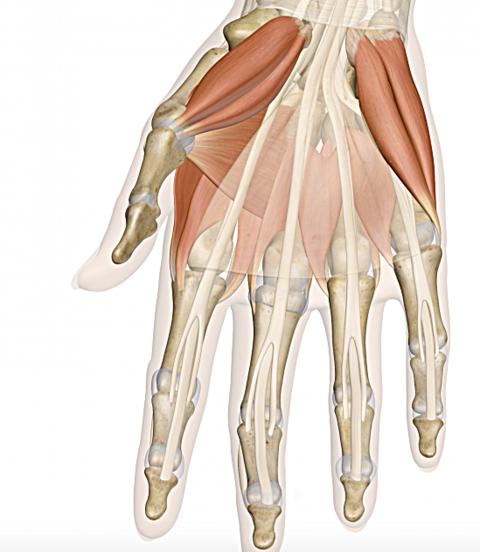
From tendinitis and arthritis to spinal disc problems and plantar fasciitis, musculoskeletal diseases and conditions make us painfully aware of the body’s mechanisms of movement that we often take for granted, until that movement is curtailed. Learn all about these common ailments, as well as how they are treated and prevented.
- Arthritis - Osteoarthritis, Rheumatoid Arthritis and Gout »
- Fibromyalgia »
- Herniated Disc »
- Hiatal Hernia »
- Myoclonus »
- Myositis »
- Plantar Fasciitis »
- Scoliosis »
- Shin Splints »
- Sleep Apnea - Central and Obstructive Sleep Apnea »
- Stickler Syndrome »
- Tendinitis and Tendinosis »
- TMJ Disorders »
- Water On the Knee »
Nervous System and Mental Health

Mental health and nervous system disorders affect people at all stages of life, from childhood to advanced age, and there’s never been a better time to study; scientists learn more about the incredibly complex human brain with each passing year.
- Alzheimer's Disease »
- Astigmatism »
- Attention-Deficit/Hyperactivity Disorder (ADHD) »
- Autism and Autism Spectrum Disorder (ASD) »
- Bell's Palsy »
- Carpal Tunnel Syndrome »
- Depression »
- Obsessive-Compulsive Disorder - OCD »
- Shingles »
- Vasovagal Response and Vasovagal Syncope »
- Viral Meningitis »
Reproductive

Explore various diseases and conditions that affect our reproductive organs. Learn about how these disorders arise, how they might be prevented, and how healthcare professionals diagnose and treat them.
- Chlamydia »
- Epididymitis »
- Erectile Dysfunction (ED) »
- HPV (Human Papillomavirus) »
- Mastitis »
- Menorrhagia »
- Vaginitis »
Respiratory
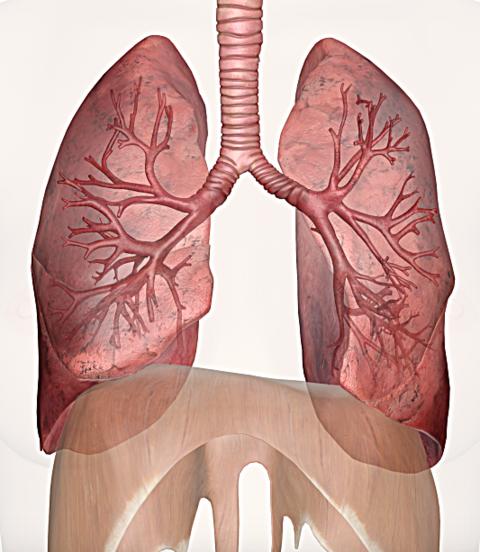
The health of our respiratory system is vital to our overall health; our body’s cells require oxygen and we also need a way to get rid of the carbon dioxide that our bodies produce as waste. Learn about some of the common diseases and conditions that affect the proper functioning of our respiratory system.
- Asthma »
- Atelectasis »
- Legionnaires' Disease »
- Measles »
- Parvovirus Infection (Fifth Disease) »
- Pneumonia »
- Scarlet Fever »
Skin Conditions

Did you know that the skin is the body’s largest organ? It’s also the outermost organ, so it interfaces constantly with our surrounding environment and naturally plays protective, exploratory and regulatory roles for us. But there are many diseases and conditions that can affect the normal functioning of our skin. Sometimes the symptoms are primarily cosmetic, but other times the effects of a skin condition are much more threatening.
- Acne »
- Atopic Dermatitis (Eczema) »
- Impetigo - Bullous and Nonbullous Impetigo, and Ecthyma »
- Molluscum Contagiosum »
- Psoriasis »
- Scabies »
- Vitiligo »
'의학' 카테고리의 다른 글
| [수업자료]bioVision이라는 Cell 내의 삶을 구현해놓은 flash (0) | 2019.05.25 |
|---|---|
| anotomy 101 (0) | 2019.05.25 |
| [수업자료]what is DNA and its functions (0) | 2019.05.25 |
| 각종 과학실험을 자바,플래시 등으로 구현해 볼 수 있는 웹사이트 (0) | 2019.05.23 |
| National Geographic Incredible Human Machine (0) | 2019.05.22 |